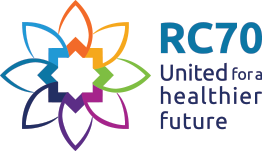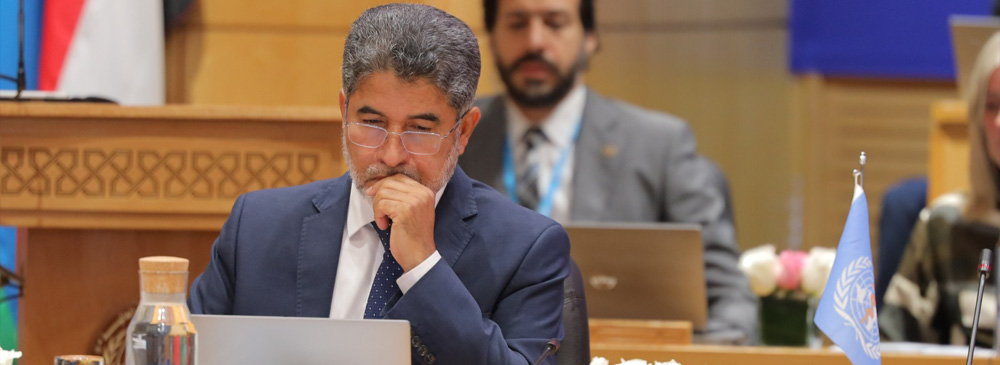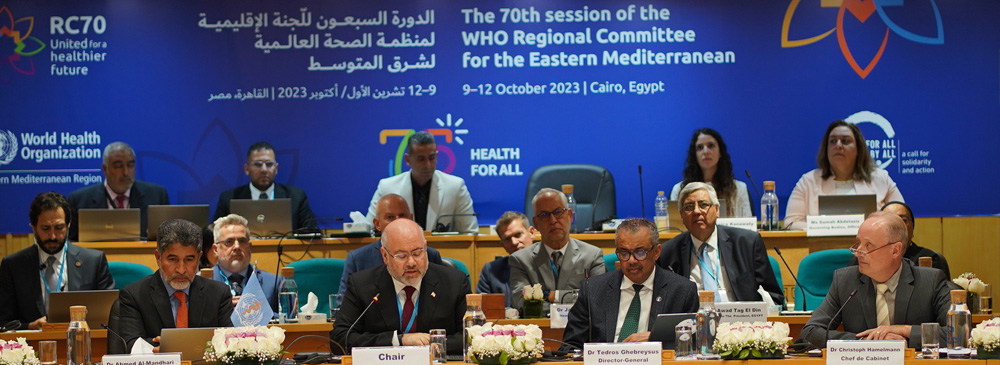WHO/Oman Medical Specialty Board to build capacity in medical education
 31 March 2021 – On 16 March 2021, the WHO country office in Oman invited representatives Dr Badar Al-Alawi and Ms Mona Al-Battashi from the Oman Medical Specialty Board to discuss inititiation of a collaborative project related to online courses that had been agreed between WHO and the Board in February 2021.
31 March 2021 – On 16 March 2021, the WHO country office in Oman invited representatives Dr Badar Al-Alawi and Ms Mona Al-Battashi from the Oman Medical Specialty Board to discuss inititiation of a collaborative project related to online courses that had been agreed between WHO and the Board in February 2021.
The discussion, led by Dr Lamia Mahmoud and Dr Kamila Al-Alawi from the WHO country office, focused on the various stages of course design, how to elicit engagement of relevant national and international experts and who from WHO and the Oman Medical Specialty Board should be involved in the development of courses.
The Oman Medical Specialty Boards specified that courses should cover 4 categories of participants – Board trainees, trainers and faculty and health care workers. The WHO country office expressed full support for the project that would not only benefit Oman but the Region as a whole.
Syria to get first deliveries of COVAX vaccines within weeks: WHO official

AMMAN (Reuters) – Syria will take delivery within weeks of its first COVID-19 vaccines from the global vaccine sharing platform COVAX, allowing it to kick off its national inoculation programme as early as next month, the U.N. health agency’s country head said on Wednesday.
The first shipments are from a consignment of one million doses of AstraZeneca Serum Institute India (AZSII) vaccines, Akjemal Magtymova, head of the World Health Organisation’s Syria mission told Reuters from Damascus in a phone interview.
MERS updates
Keynote speakers
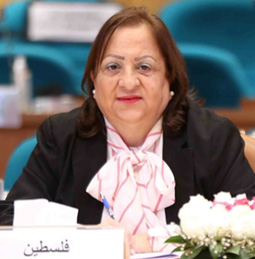
Her Excellency Dr Mai Al-Kaila
Minister of Health of Palestine and Chair of RC69
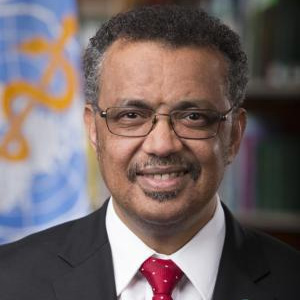
Dr Tedros Adhanom
WHO Director-General
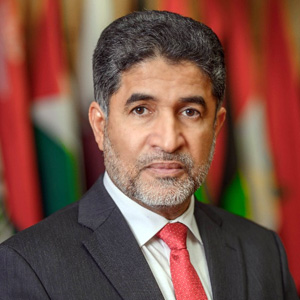
Dr Ahmed Al-Mandhari
WHO Regional Director for the Eastern Mediterranean

Ms Amina J. Mohammed
Deputy Secretary-General of the United Nations
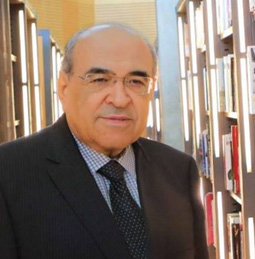
Professor Dr Mostafa El Feki
Egyptian politician, journalist and political thinker
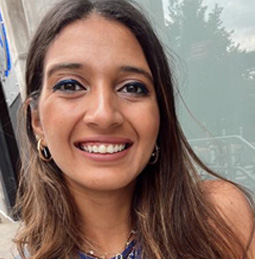
Dr Omnia El Omrani
COP27 President Youth Envoy
Picturing health
75 years of progress and challenges
United for a healthier future
Administrative matters:
بيان المدير الإقليمي بشأن البعثة إلى سوريا
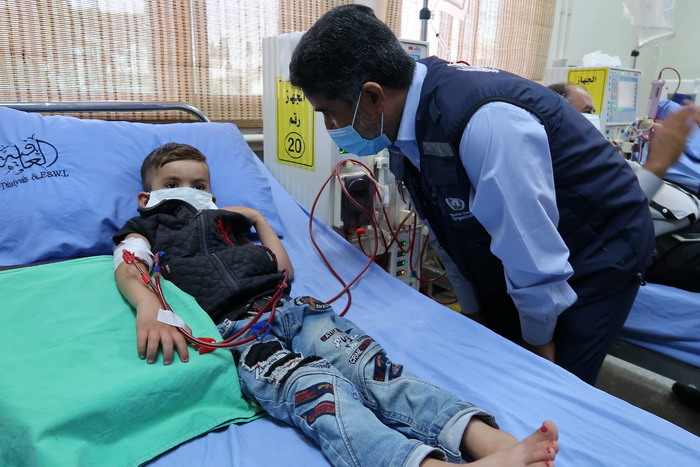
8 تشرين الثاني/ نوفمبر 2020 لقد عدتُ مؤخراً من بعثة إلى سوريا استغرقت أربعة أيام، حيث التقيتُ بمسؤولين على جميع المستويات، وعاملين صحيين، وشركاء، ودوائر أكاديمية، وغيرهم، لمعرفة المزيد عن الوضع الصحي بوجه عام، وللتوصُّل إلى سُبُل جديدة للعمل معاً من أجل تعزيز تقديم الخدمات، ولحماية السوريين من التهديدات الحالية، وللمساعدة في تقوية النظام الصحي الذي دمّرته الأزمة.
وقد التقيتُ بالعاملين الصحيين في الخطوط الأمامية والمرضى في دمشق وحمص وحماة، ومن بينهم الطفل جعفر البالغ من العمر 6 سنوات الذي يتردد على أحد مراكز الرعاية الصحية في حمص التابع لإحدى المنظمات غير الحكومية والذي تدعمه منظمة الصحة العالمية للخضوع لجلسات الغسيل الكلوي ثلاث مرات في الأسبوع للمساعدة في بقائه على قيد الحياة ونموه. وأخبرني الأطباء في المركز نفسه عن أم لطفليْن أعميَيْن ظلّت منتظرة طوال سنتين لإجراء عملية رأب الأوعية الدموية في القلب، وتمكَّنت أخيراً من إجراء هذه العملية المنقذة للحياة الأسبوع الماضي فقط.
وفي مستشفى الأطفال في دمشق، زرتُ قسم الطوارئ الجديد الذي أعادت المنظمة تأهيله بدعم من اليابان، والذي يستقبل في المتوسط 300 طفل يومياً، حيث رأيتُ طاقماً متخصصاً يستقبل المرضى المحالين من جميع أنحاء البلاد المصابين بحروق وإصابات وحالات عدوى مهددة للحياة.
والتقيتُ طوال فترة وجودي في سوريا بالأطباء وطواقم التمريض وغيرهم من العاملين الصحيين الذين تحمّلوا سنوات من العمل بكل شجاعة تحت تهديد الهجمات خلال الحرب، وما زالوا صامدين حتى الآن من أجل إنقاذ الأرواح على الرغم من قلة الموارد. وقال لي أحد الأطباء: «كنا نخدم شعبنا في الظروف العادية؛ ونحن نخدمه في هذه الظروف الاستثنائية فلكَ أن تتخيل ما واجهناه وما نواجهه الآن».
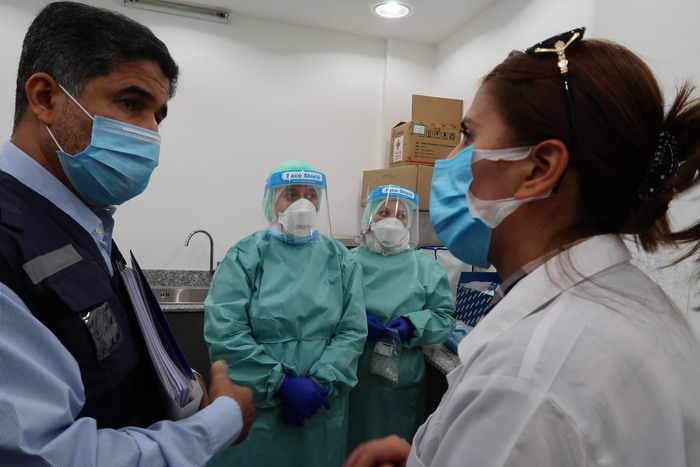
ونحن في منظمة الصحة العالمية نتحدث عن قدرة النُظم الصحية على الصمود، وأهميتها في ضمان صحة جميع الناس وعافيتهم، لا سيّما أثناء الأزمات. ولكن في سوريا، رأيتُ القدرة على الصمود والروح الإيجابية لهذا الشعب الذي لم يستسلم، ولا يزال عازماً على إعادة السلام والازدهار إلى بلده على الرغم من اليأس الذي واجهه على مدى قرابة عقد من الزمان.
لكن الدمار الناجم عن الحرب لا يزال جلياً في سوريا، كما أن التعقيدات المستجدة - مثل كوفيد-19 - فاقمت أعباء الناس الذين أنهكهم بالفعل الصراع المستمر وفاشيات الأمراض والكوارث الطبيعية، ومنها الحريق الهائل الأخير الذي دمّر سُبُل عيش الكثيرين.
ولا يزال نصف جميع المهنيين الصحيين خارج البلاد، ولا يعمل سوى 48% من المستشفيات العامة و48% من مراكز الرعاية الصحية الأولية بكامل طاقتها. ولا يزال هناك نقص في أعداد العاملين الصحيين واللوازم الطبية والمعدات والأدوية، حيث لا يتوفر ما يقرب من خُمس الأدوية المنتَجة محلياً بسبب الآثار السلبية للأزمة الاقتصادية على إنتاج المستحضرات الصيدلانية المحلية.
فالناس يعانون ويموتون بسبب نقص الأدوية اللازمة لحالات مثل ارتفاع ضغط الدم والسُكري والفشل الكلوي. وتتعرّض المعدات الرديئة النوعية التي تُستخدم على مدار نوبتيْن ليلاً ونهاراً للضغط الشديد بسبب ارتفاع الطلب عليها والقيود المفروضة على استيراد قطع الغيار؛ وقد أدّت العقوبات إلى تفاقم الوضع الذي كان متردياً أصلاً، الأمر الذي أثّر على جميع الناس وجميع القطاعات، ولا سيّما قطاع الصحة.
والأطباء المهرة بحاجة ماسّة إلى موارد تمكّنهم من إجراء العمليات الجراحية المنقذة للحياة وغيرها من الإجراءات الطبية اللازمة. وطلاب الطب مصممون على خدمة بلادهم ولكنهم يشعرون بالإحباط بسبب الثغرات العديدة التي سيواجهونها باعتبارهم مقدمي خدمات في الخطوط الأمامية.
ومع أن الشعب السوري يعيش حالة من الحرب والجوع والمرض، فقد أصبح يواجه الآن تهديداً آخر يلوح في الأفق: مثل العديد من البلدان في جميع أنحاء العالم، إذ نتوقع موجة أخرى من كوفيد-19 في سوريا.
وبينما نواصل تقديم الإمدادات وتوسيع نطاق القدرة على إجراء الاختبارات في جميع أنحاء البلاد من خلال اتباع نهج "جميع الأساليب"، رأيت التزاماً رفيع المستوى عبر جميع مستويات الشركاء وجميع القطاعات لمكافحة الجائحة بما يتماشى مع توصيات منظمة الصحة العالمية. ومع ذلك، لا تزال القدرة على إجراء الاختبارات محدودة، ويظل التزام عموم الناس باستخدام الكمامات والتباعد البدني منخفضاً، ولا يزال العاملون الصحيون معرّضين بشدة للخطر بسبب الافتقار إلى معدات الوقاية الشخصية.
إن الشعب السوري أمامه طريق طويل وشاق. ولكن على الرغم من الدمار والحرمان، فإن هناك قدرة هائلة على الصمود وأملاً مشجعاً؛ وسنواصل دعمنا لجميع السوريين في كل خطوة على الدرب، ولا سيّما الفئات الأكثر ضعفاً، مهما كانت الظروف التي يواجهونها. ورغم كل هذه التحديات، فقد تمكّن السوريون من الحفاظ على مستوى أساسي من الرعاية الصحية يمكننا البناء عليه بدعم من المجتمع الدولي وشركائنا الملتزمين داخل البلاد وخارجها.








